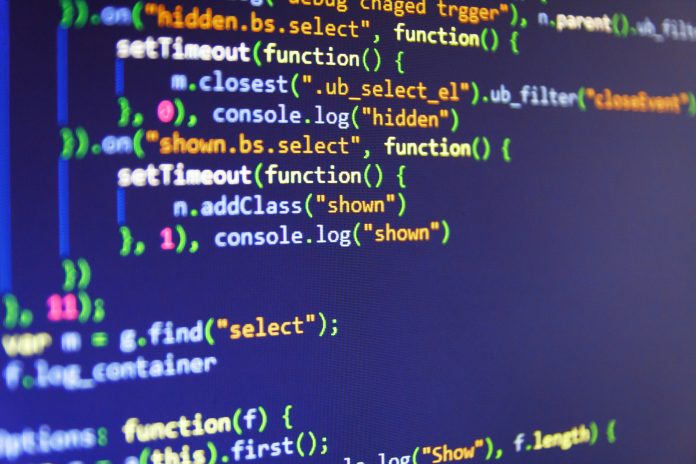Dr John Yardley, Managing Director of Threads Software Ltd, precisely outlines the value of studying both mathematics and computer science together, and why students should be encouraged to see the creativity in research
While science is generally regarded as the study of natural phenomena, computing, like mathematics, is an entirely human construction. So even though a great deal of science knowledge is required to build a computer, that does not make the study of computing a science in itself. This would be academic but for the fact that the words “science” and “mathematics” tend to put off many young people from studying the subjects at school.
In a previous article written for Open Access Government, I discussed the inextricable link between computer science and mathematics. Computing is built upon the principles of mathematics – from describing the quantum behaviour of semiconductors, through formal logic, number theory and what is computable. And modern mathematics has benefited immeasurably from computing. There are whole classes of mathematical problems which can only be tackled digitally. Although we may see mathematics as academic and computing as practical, specialising in just one can exclude a large number of applications. Gaming, artificial intelligence, simulation, process control, networking all depend on and require a good understanding of mathematics.
Those students who avoid studying science, mathematics, or engineering, do so for a variety of reasons. Some feel there is not enough money in it, some hate it, and some believe it is just plain difficult. Some also feel mathematics and computing are too geeky to be cool. There is no disagreement with that, but the one thing they often miss is how creative these subjects can be. And nothing is more creative than research. Unless you have done it, it is difficult to express the creative thrill of writing a computer program. Just as artists can paint beautiful paintings, so can computer scientists write beautiful programs and mathematicians develop beautiful equations. Indeed, many mathematicians are accomplished musicians.
Research
There are thousands of well paid, utterly boring jobs in mathematics and computer science, but if job satisfaction is important, then research is one place to find it.
Unlike genetic engineering, you do not need massive resources to devise something novel in computing or mathematics. With just a personal computer, there are an unlimited number of problems to be solved. And the idea that large teams are required to solve difficult problems quickly is just not true. In software development, doubling the workforce rarely halves program development time. This is because whenever you add someone to the software development process, most of the gains in effort are lost in communication.
As alluded to earlier, research is not just about mixing chemicals in beakers, it is also about finding out if someone has already done it before. We all have those “great idea” moments, and we know how disappointing it is to discover someone else has already had that idea, but it is a lot more disappointing to discover this when your patent is rejected.
There is no denying that we attract fewer students into research because of its geeky, difficult, and not-well-paid-enough connotations, but to a large extent, this is a self-fulfilling prophecy – particularly in the UK. Many of our best ideas are exploited outside the UK, and our best researchers lured abroad to work. And while I am sure that schools’ guidance includes careers in research, the designated path is mostly via university employment or large monolithic corporations top-heavy with bureaucracy.
However, so few teaching staff have direct experience of the job satisfaction gained from research, they cannot convincingly promote it. What they can do, however, is give students a taste for it, and computing and mathematics are two of the disciplines where this can be done with very little investment. It is also the area where small companies and entrepreneurs make the biggest impact because they can develop their ideas and get them to market so much more quickly than large companies.
Algorithms
We tend to assume that science and technology are so advanced, so dominated by big business, and so intellectually difficult that the days of discovering anything on your own are over. Nothing could be further from the truth. Many aspects of our daily lives are governed by algorithms written initially by one person.
Algorithms are the root of the endless seam of creativity that computing and mathematics both provide. In simple terms, they are a sequence of steps required to convert an input into an output, or to prove the truth of a statement. Since any physical entity can be represented by a string of numbers, algorithms can, in principle, be written to transform literally anything.
Our lives are governed by algorithms, because our evolution seems to have bestowed on us the need to automate. So, be it searching for an item to buy, playing a computer game, analysing our blood samples, or stopping us hitting the car in front – we are using somebody’s algorithm.
Although research and development go hand in hand, it is important to establish at the outset what we do not know and to set about how we might find out. No matter how complex the problem, it can always be broken down into bite-sized chunks we can understand and digest. Defining the problem goes 90% of the way to solving it, and this applies to almost every aspect of life.
In summary, we need to teach our children not just the importance of research in competing in world markets but as something that is just as creative and fulfilling as any of the arts. Research also teaches us to be independent. Computing and mathematics are the perfect vehicles for research because there are still many problems to be solved – problems that can be solved by one person with the minimum of resources – anywhere.












Cpp language progeaming
Thanks for motive motivation